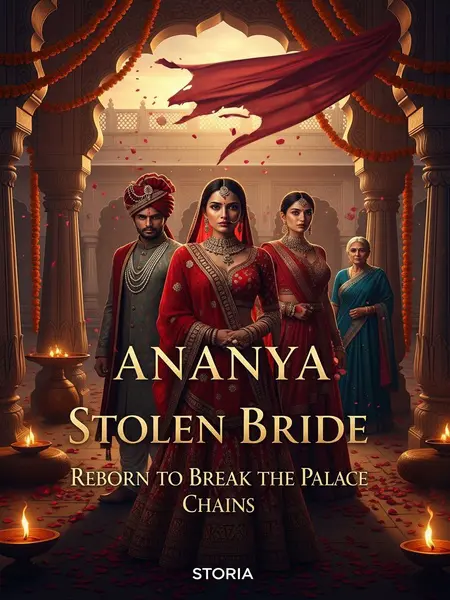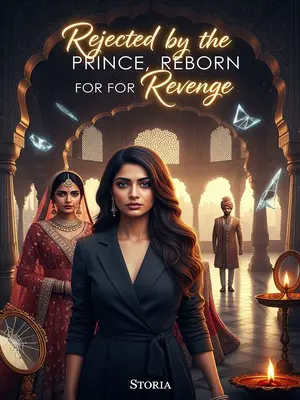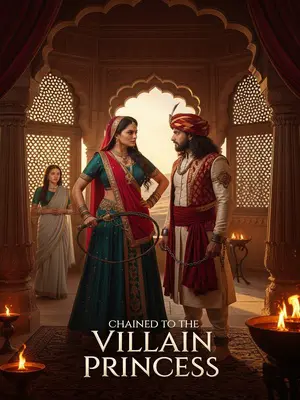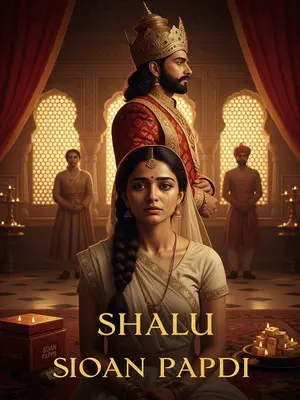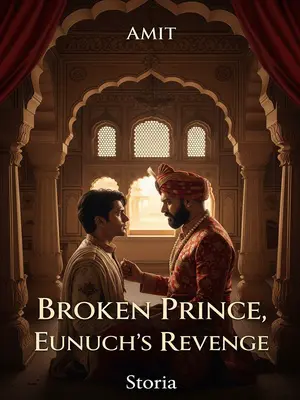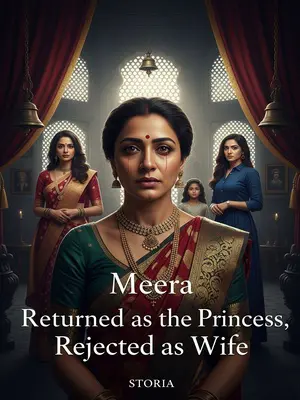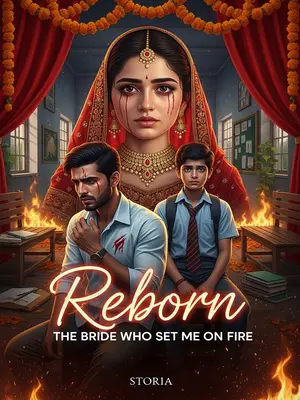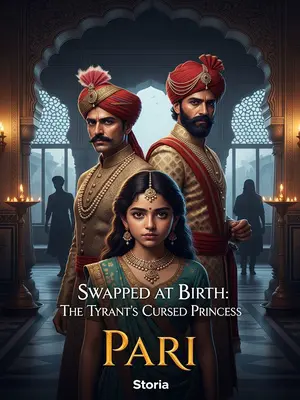Chapter 1: Echoes of a Maharani
I was Maharani for three years, and Rajmata for twenty.
Even now, as I speak, the echo of temple bells drifts in from the street below. A faint scent of jasmine agarbatti seems to linger, as if echoing the grandeur of a past life. My silks and jewels had long been locked away in the family safe, but memories cling to the corners of the haveli, shimmering like old sunlight on marble.
After my death, my descendants gathered around me, and the courtiers wept at my funeral pyre.
The women keened, beating their chests, saree pallus pulled tight over their faces. Aunty Shanta scattered rose petals over the pyre, her lips moving in silent prayer. The old family retainer, Lala Ramprasad, wept openly, shaking his silver head. Some relatives, of course, exchanged quick whispers about property and shares, but for a few moments, even the courtyard pigeons seemed to mourn.
By all accounts, a life such as mine should have left no regrets.
People said my portrait would hang forever in the Rajpur Durbar Hall, the smile serene, the posture regal. But even behind such painted calm, my heart carried its own aches. Even now, as incense smoke spirals up, regret lingers like a bruise under my bangles.
Yet, given a second chance, when Dadi asked whom I wished to marry, I did not choose the Yuvraj. Instead, I chose Prince Aryan, who guarded the borderlands.
That moment in the inner zenana, Dadi’s voice was gentle but stern: “Beta, think carefully.” Before I answered, I hesitated, my eyes flicking to the faded family photos on the wall and Dadi’s old walking stick resting nearby—the weight of tradition heavy on my shoulders. My answer surprised even myself—a quiet defiance, the sort that only those who have already suffered can muster. Aryan, whose eyes held the wild rivers of our border, not the clipped politeness of palaces.
From then on, whether in the north or the south, I wished only to be with you—never to meet the Yuvraj again.
Across deserts and forests, from the dust of Rajpur to the mist of the Vindhyas, my only prayer was for you. I promised myself never again to let old ties choke my new breath.
In the Gulmohar Courtyard, the air was so still that even the tick of the wall clock sounded loud.
Outside, the sharp calls of crows and the distant clatter of a rickshaw faded beneath the heavy, velvet silence. The marble under my knees was cool, grounding me even as my mind whirled. The faint hum of the ceiling fan failed to cut through the tension.
Wisps of sandalwood agarbatti curled from the holder, shrouding Dadi’s sharp gaze.
A faded calendar from last year hung beside her armchair, pages curled by the monsoon’s humidity. Dadi sat upright, starched saree pleats perfectly aligned, her silver hair pulled back tight. Only her eyes moved, tracking me like a hawk.
She looked me up and down, as though trying to see right through me.
I felt as if every little secret was being dusted out of my soul, as if she could tell by the way I held my dupatta whether I was hiding something. Her gaze, sharp as a sewing needle, made me involuntarily smooth the pleats of my anarkali.
“You have always been fond of the Yuvraj. Why do you not choose him?”
Her tone was deceptively gentle, but there was a warning bell behind it. Even the maid polishing the silver tray paused, breath held, waiting for my reply. Somewhere, a bulb flickered with the threat of a power cut.
I knelt on the cool marble floor for a long time, my voice low. Before I replied, my gaze lingered on the family photos and Dadi’s old walking stick, feeling the generations of expectation pressing on me:
“Precisely because I am fond of him, I cannot marry him.”
The words trembled out, as soft as a sigh. My fingers twisted at the edge of my dupatta, and the shadow of the neem tree outside shifted across the floor, as if hiding my shame.
“I do not wish to harm myself, nor to waste away waiting with a broken heart for someone who will never return. I beg Dadi to grant my wish.”
Each word was heavy with unshed tears. The taste of lost hope lingered on my tongue; I kept my head bowed, the hum of an old film song drifting in from the kitchen radio.
I remained kneeling until my knees went numb.
Pins and needles prickled my shins, but I dared not move. The marble seemed to seep into my bones. I caught the whiff of turmeric from the evening’s dal simmering nearby, a reminder of ordinary comforts I was forgoing for this choice.
At last, I heard Dadi sigh, her tone softening:
“Very well. Tomorrow, when I go to the palace, I will inform His Majesty and ask for a marriage decree for you.”
Her voice, when it finally cracked, carried both weariness and acceptance. I imagined her mind racing ahead, recalculating family alliances and the likely wagging of neighbours’ tongues. But for a moment, the old matriarch’s shell slipped, and I glimpsed only Dadi, tired and loving, doing her duty, her hand fussing with a fresh paan leaf as she looked away.
I bowed deeply, pressing my forehead to the floor once more.
The cold marble pressed against my skin, grounding me in the moment. My braid slipped forward, brushing the floor. I offered a silent prayer—please, let this new path bring peace.
In this life, I will not marry Kabir again.
A resolve settled over me, heavy as a monsoon sky. The pain of my last life still echoed, and this time, I would not let the same sorrow return.
As the chapter closes, the faint hiss of the pressure cooker in the kitchen reminds me—change is coming, ready or not.
